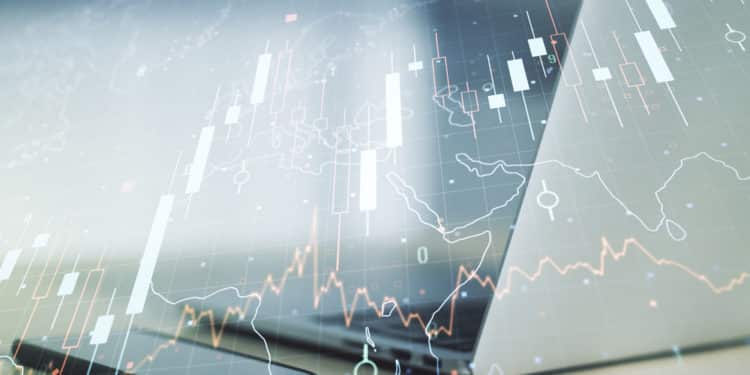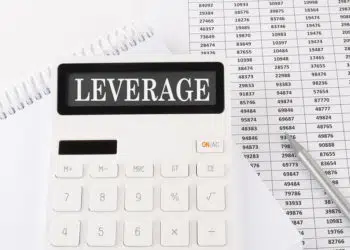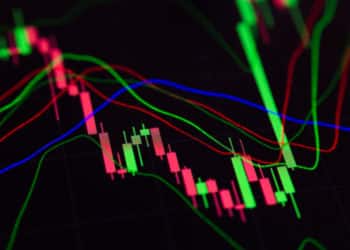Forex futures contracts are binding agreements in which parties agree to trade one currency for another at an agreed-upon rate at some predetermined future date.
Currency futures are technically classified as financial derivatives because their value is connected to the currency’s exchange rate.
How they work
Exchange rates are taken into account when calculating futures on currency pairs. The transaction is settled in the underlying currency. Using the EUR contract market as an example, the euro exchange rate serves as the guiding rate for this market. Traders must employ multiples of the contract size allowed for each currency in order to trade. For example, if a trader buys a single euro contract, they will own €125k.
As the euro fluctuates in value, the value of the trader’s position also rises and falls.
Trading FX futures takes place in centralized markets, in standardized volumes/sizes. Settlement can either be conducted in cash or delivered physically. On a mark-to-market basis, cash-settled contracts are settled every day.
Until the expiration date, the difference between the current price and the previous day’s price is resolved in cash. There must be an exchange of currency at the expiration of a contract if it is settled by physical delivery.
Until the contract’s expiration date, futures are marked to market every day, and any adjustments are settled accordingly. Prior to expiration, a contract can be sold. If a contract of the opposite direction and value is opened, thereby bringing an end to the initial one, the contract can be voided.
Features of FX futures
There are various components to foreign exchange futures contracts, as mentioned below:
- The exchange rate at which the currencies will be traded
- The expiry date, which defines the date when the contract must be settled. It serves as the deadline for settling the contract.
- The size of the contract is standardized. It defines the amount of money involved or the value of the contract.
- Margin: It is a standard requirement to deposit margin when signing up for a futures contract. Margin calls occur when the initial margin goes below this level, and the investor must deposit additional funds to bring the initial margin back up.
Comparatively speaking, the counterparty risk is greatly reduced with currency futures contracts because trading takes place in centralized markets and through clearinghouses and margins that are in place.
Why trade in FX futures?
For hedging
Forex futures are used by investors to limit their risk of currency exchange rate volatility. Institutional players are ideally suited for this application. Even small-scale retail dealers can profit from it.
Hedging with these instruments is usually mathematically sound, but on a smaller scale, its impacts may be negligible or non-existent altogether.
Let’s have a look at this example: A corporation in Germany expects to be paid $10 million for work done in the United States.
The payment is due in 5 months. The EURUSD pair is trading at 1.23 at the moment. That means the $10 million is the equivalent of €8,130,081.30. The German corporation would suffer huge losses if the dollar was to depreciate against the euro. For instance, if the EURUSD rate rose to 1.25, there would be a loss of €130 081.
An effective solution to safeguard a transaction in the spot FX market is not available.
Despite this, it is possible to sell 8 contracts, each worth €1,250,000, denominated in euros. Each of the eight would provide a profit if the USD depreciated against EUR. The transaction’s losses would be mitigated by the gains from this transaction.
For speculating
To profit from the Forex market moves, they buy a currency and then sell it when its value increases. When the value of a currency falls, it is impossible to profit from it.
Futures deal with this issue. When a currency is expected to fall in value, FX contracts might be sold rather than bought by traders.
FX futures, unlike the spot forex market, are governed by exchange laws. Investors can benefit from them because of their flexible contract sizes. Because they are so easily traded, they are also ideal for institutional investors that want to make large investments.
Margin
Margin is the amount of money a trader needs to have in their account before they may open any contract in currency futures. This buffer has to be included to keep a position overnight. Expenses are not incurred because of the profit margin. This is money retained by the broker in case you lose money while trading. Your margined money will be available for use once the trade has been completed.
In summary
In a currency futures contract, two parties agree on a date in the future and also on a predetermined exchange rate for the exchange of currencies. As a result of the contract, both parties are able to limit risk and set an exchange rate for currency exchanges. In the following days, the contract can be bought and sold for speculative purposes, but at expiration, there will be an exchange of the currencies at the rate agreed upon.







